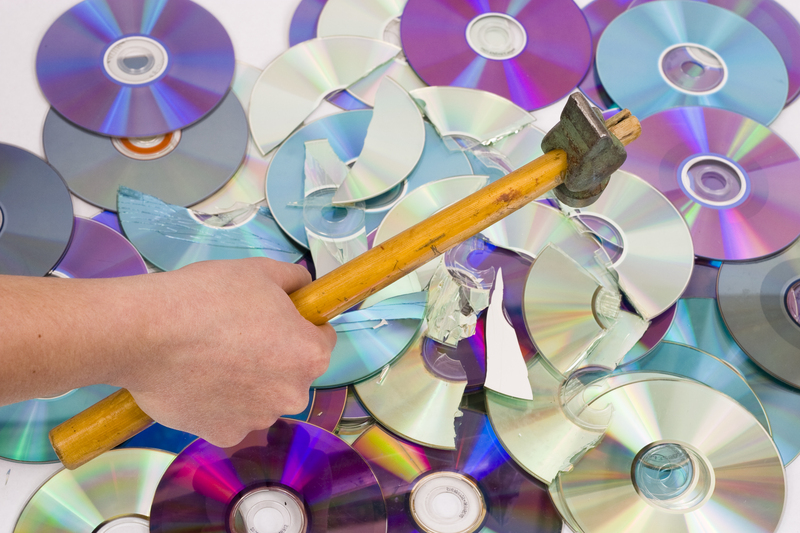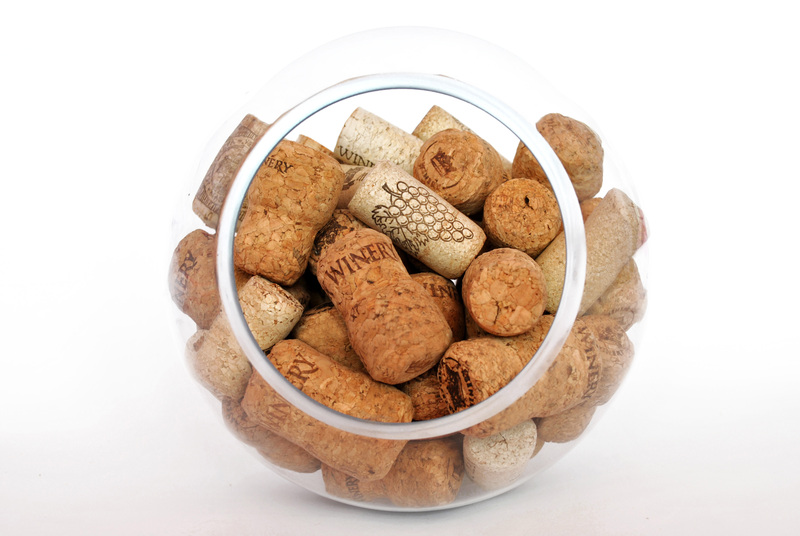Sustainable Living Starts With Transforming Trash Into Everyday Wonders
Sustainable living is more than just a trendy phrase--it reflects a conscious effort to minimize environmental impact by reusing, repurposing, and recycling waste. In today's fast-paced world of consumption, trash continues to pile up in ever-increasing amounts. But what if we told you that transforming trash into everyday wonders could be your gateway to a greener, more budget-friendly, and creative lifestyle?
This guide explores practical ways to turn discarded items into valuable resources. Join the movement towards a cleaner planet by applying the art and science of innovative waste transformation. From DIY upcycled decor to practical composting techniques, discover how waste can spark creativity and help pave the path to a sustainable future.
Understanding the Impact of Waste on Our Planet
Before diving into the wonders of transforming trash, it's essential to comprehend the escalating problem of global waste. Every year, humanity generates billions of tons of garbage, much of which ends up polluting landfills, waterways, and oceans. These heaps of waste are responsible for:
- Releasing greenhouse gases that contribute to climate change
- Leaching harmful chemicals into soil and water sources
- Endangering wildlife and marine life through ingestion and entanglement
- Depleting valuable natural resources and straining local ecosystems
According to the World Bank, global waste is expected to increase by 70% by 2050 if current trends continue. That is why adopting sustainable living practices by transforming waste into useful products is critical for today and generations to come.

What Does It Mean to Transform Trash?
Transforming trash refers to the creative and purposeful process of converting what would otherwise be waste into new, valuable, and functional items. The core of this practice lies in the principles of the circular economy--a model that encourages reusing, recycling, and upcycling to keep materials in use for as long as possible.
Everyday wonders born from trash can range from artistic home decor made from glass bottles to practical storage containers upcycled from plastic packaging. By rethinking waste, we conserve resources, reduce landfill burden, lower our ecological footprint, and foster a culture of mindful consumption.
The Benefits of Sustainable Trash Transformation
- Environmental Protection: Reduces pollution and conserves resources.
- Cost Efficiency: Saves money by reusing materials instead of purchasing new.
- Creativity: Encourages innovation and resourcefulness.
- Community Building: Inspires collaboration on local sustainability initiatives.
- Circular Economy Support: Generates economic opportunities with minimal environmental impact.
Start with the Waste Audit: Knowing What You Throw Away
One key approach to sustainable living is a simple yet eye-opening waste audit. By tracking the items you discard, you'll quickly pinpoint which types of trash you generate most frequently.
- Paper and cardboard
- Food scraps and organic waste
- Plastic containers and packaging
- Glass jars and bottles
- Electronic waste (e-waste)
- Metal cans and foil
- Textiles and clothing
Once you're aware of your most common waste streams, brainstorm creative ideas to transform your trash into practical wonders. For instance, could glass bottles become flower vases? Could food scraps nourish your backyard garden through composting?
Creative Ways to Transform Trash Into Everyday Wonders
1. Upcycle for Art and Home Decor
Upcycling is at the heart of transforming trash into treasures. By elevating discarded items into new, higher-value products, you'll save money and add a unique, personal touch to your living space. Here are some inspiring projects:
- Glass Bottle Lanterns: Clean, paint, or decorate old glass bottles. Add string lights for a magical patio display.
- Jar Herb Gardens: Use glass jars as planters for herbs or succulents on your kitchen windowsill.
- Magazine Bowls: Roll up colorful magazine pages and glue them together to create stylish fruit bowls.
- Plastic Spoon Mirrors: Cut and paint plastic spoons, then arrange them around an old mirror for a modern, eco-friendly statement piece.
- Wine Cork Boards: Glue bottle corks to a wooden board for a chic, sustainable spot to pin reminders.
2. Composting: Turn Organic Waste Into Garden Gold
Food scraps, yard trimmings, and biodegradable materials account for a large share of household waste. With a simple composting setup, these "trashy" items can become nutrient-rich soil for your plants.
- Start Small: Even if you don't have a big yard, try worm composting or keep a small countertop bin for food scraps.
- What to Compost: Fruits, vegetables, coffee grounds, eggshells, and shredded cardboard are compost-friendly.
- What to Avoid: Meat, dairy, oily foods, and pet waste don't break down easily and may attract pests.
- Benefits: Compost improves soil quality, reduces landfill methane emissions, and sustains a healthy garden ecosystem.
3. Fashion and Textiles: Upcycle Clothes Into Stunning Accessories
Fast fashion generates massive amounts of textile waste every year. Embrace sustainable fashion by transforming old clothing into new uses:
- T-shirt Tote Bags: Cut and sew old tees into reusable shopping bags.
- Denim Organizers: Repurpose faded jeans into makeup pouches or tool rolls.
- Patchwork: Create quilts, pillows, or wall art from fabric scraps--each piece tells its own story.
- Rag Rugs: Weave shredded clothes into vibrant, upcycled rugs.
4. Plastic Reimagined: From Pollution to Practicality
Plastic's durability is its blessing and curse. While plastic items take hundreds of years to break down, their resilience makes them ideal for upcycling:
- Planters: Cut old bottles or containers into pots for household plants.
- Storage Bins: Use cleaned tubs and jars to sort craft items, utensils, or small tools.
- Decorative Sculptures: Get creative with bottle caps, bags, or packaging for artwork and accessories.
- Kids' Crafts: Turn safe plastic items into craft supplies and educational toys.
5. Metal and Electronic Waste: Reuse With Caution
Old tin cans, wire, and even out-of-date electronics can gain a second life with the right approach:
- Tin Can Lanterns: Punch patterns in empty cans, paint, and insert tealights for magical garden lighting.
- DIY Speakers: Creative hobbyists can repurpose speakers or salvage useful parts from outdated electronic devices.
- Jewelry: Make fashionable necklaces or bracelets from wire, circuit boards, or keys.
- Donation: Outdated but functional electronics can serve students or nonprofits when responsibly donated.
Sustainable Living Tips: Reducing Waste Every Day
Transforming trash into everyday wonders isn't just about big projects--it's about cultivating habits that prevent waste in the first place. Here are some essential sustainability tips:
- Refuse Single-Use: Opt for reusable shopping bags, water bottles, and coffee cups.
- Repair and Mend: Fix broken items rather than discarding them.
- Repurpose Whenever Possible: View waste as a future resource.
- Educate Yourself and Others: Share knowledge about sustainable living with your community--and learn from others in turn.
- Recycle Responsibly: Follow local recycling rules to keep materials out of landfills.
Inspiration From Around the World
Globally, innovative minds are leading the way by turning waste into wonders:
- Eco-bricks: In several countries, people create building materials by compacting plastic waste into bottles and using them for low-cost construction.
- Community Repair Cafes: Across Europe and North America, volunteers teach people how to fix everything from electronics to bicycles and even clothes.
- Art Installations from Trash: Artists worldwide are spotlighting pollution and sustainability by building giant sculptures entirely from ocean plastic or landfill-bound debris.
- Furniture from Pallets: Businesses and individuals refurbish shipping pallets into stylish and functional tables, chairs, and beds.
Getting Started: How to Transform Your Trash Today
If you're wondering how to begin your journey into sustainable living by transforming trash, follow these simple steps:
- Analyze Your Waste: Audit your home to identify commonly discarded items.
- Find Inspiration: Browse social media, blogs, or upcycling websites for creative ideas.
- Gather Materials: Collect materials safely, ensuring they're clean and free from hazardous substances.
- Start Small: Choose a beginner-friendly project--a planter, a storage jar, or a tote bag.
- Get the Family Involved: Encourage children or friends to brainstorm projects, turning waste transformation into a fun group effort.
- Share Your Success: Inspire others by showcasing your upcycled creations online or at community events.
Challenges and How to Overcome Them
- Lack of Time: Start with simple ideas that require minimal effort and supplies.
- Minimal Skills: Plenty of resources, video tutorials, and instructions are available online for free.
- Limited Space: Focus on projects like composting or upcycling clothing that don't need much room.
- Access to Materials: Network with neighbors or join local swap groups to exchange reusable items.

The Future of Sustainable Living: Making Trash Transformation the Norm
As countries, cities, and individuals confront the environmental impact of our throwaway culture, sustainable innovation is revolutionizing waste management. Companies are redesigning products for easy disassembly and recycling, while entrepreneurs create new business models that prioritize upcycling and sustainable consumption.
Schools are incorporating sustainability and creative waste transformation into curriculums, helping the next generation view trash as a resource rather than a burden. Local governments are incentivizing composting, recycling, and community reuse programs to reduce landfill pressure and encourage eco-friendly lifestyles.
How You Can Lead the Change
- Advocate: Support eco-friendly brands and policies in your community.
- Educate: Teach your family, friends, and colleagues about the benefits of waste transformation.
- Engage: Participate in local upcycling workshops, recycling drives, or clean-up campaigns.
- Innovate: Share ideas for waste solutions with local leaders, schools, or businesses.
Conclusion: Sustainable Living Is Within Reach
Transforming trash into everyday wonders is more than a craft or a cause--it's a mindset that shapes the future of our planet. Through small, consistent changes in how you manage waste, you can contribute to cleaner neighborhoods, healthier ecosystems, and a more resourceful society.
Every bottle you repurpose, every garment you upcycle, and every scrap you compost chips away at the world's mounting waste problem. Sustainable living is not out of reach; it starts with the decisions you make in your daily life. Embrace the challenge with creativity and curiosity, and watch your "trash" become treasures that inspire those around you.
Let's create a world where nothing goes to waste and sustainable living thrives--one everyday wonder at a time.